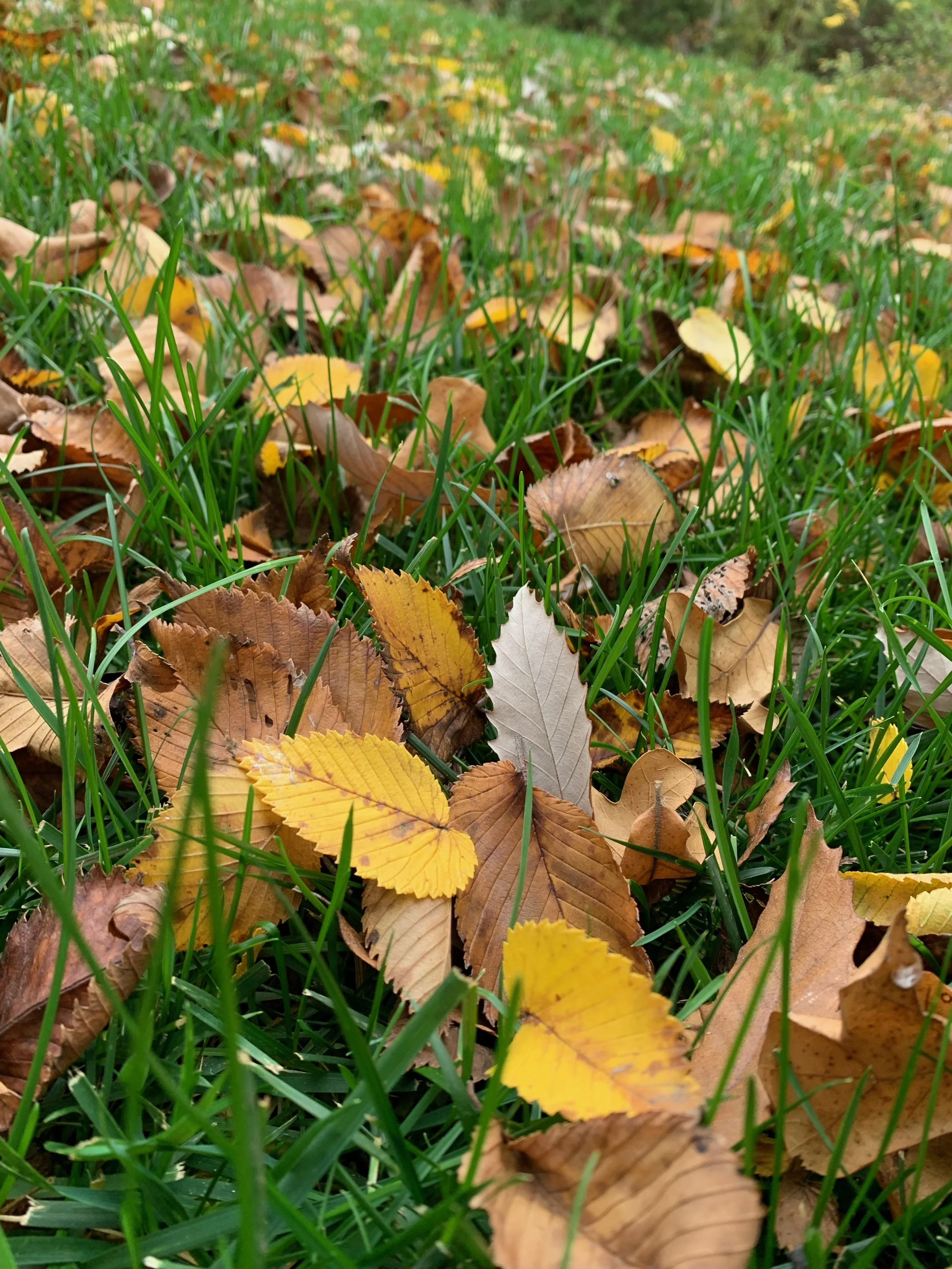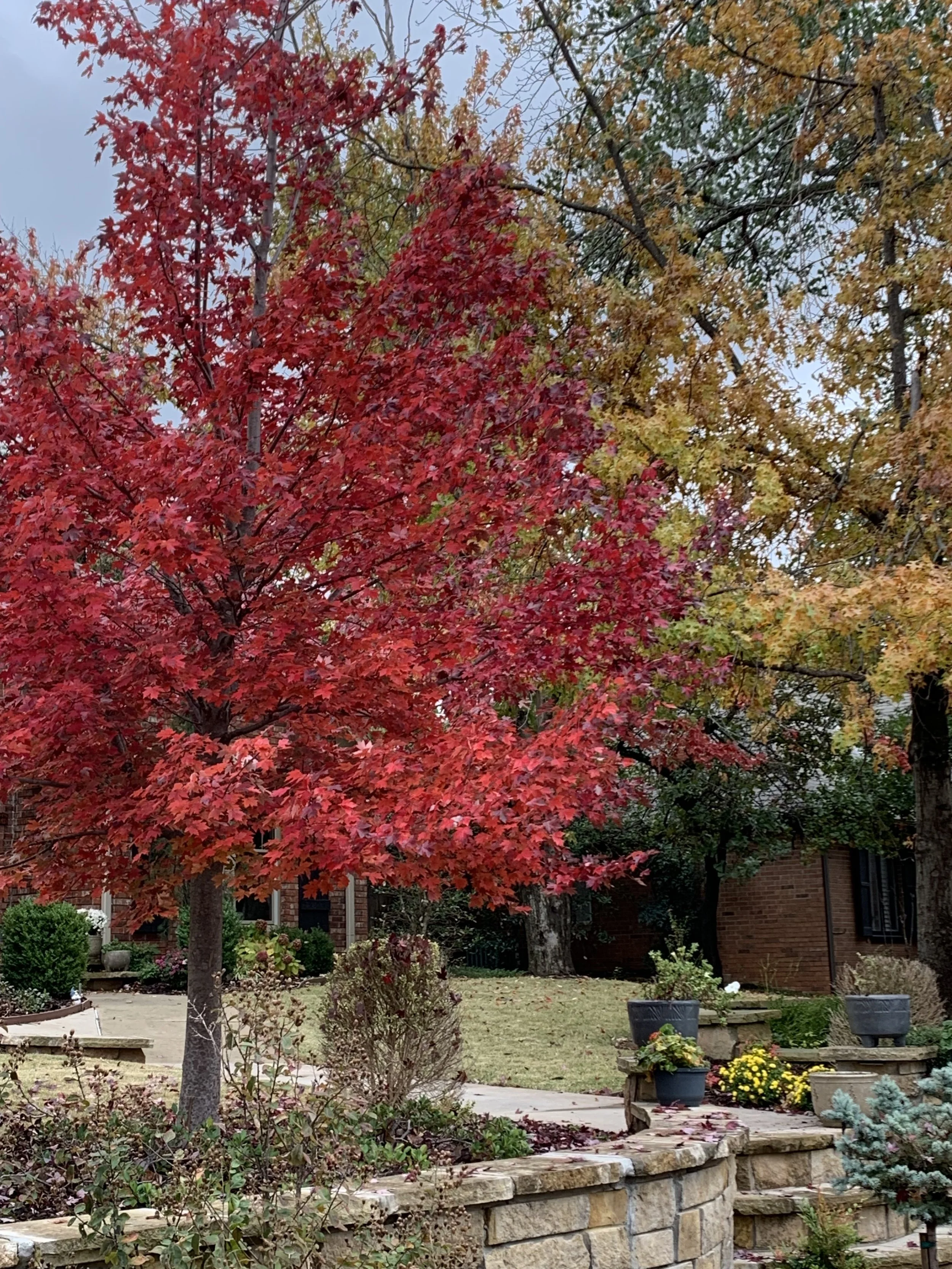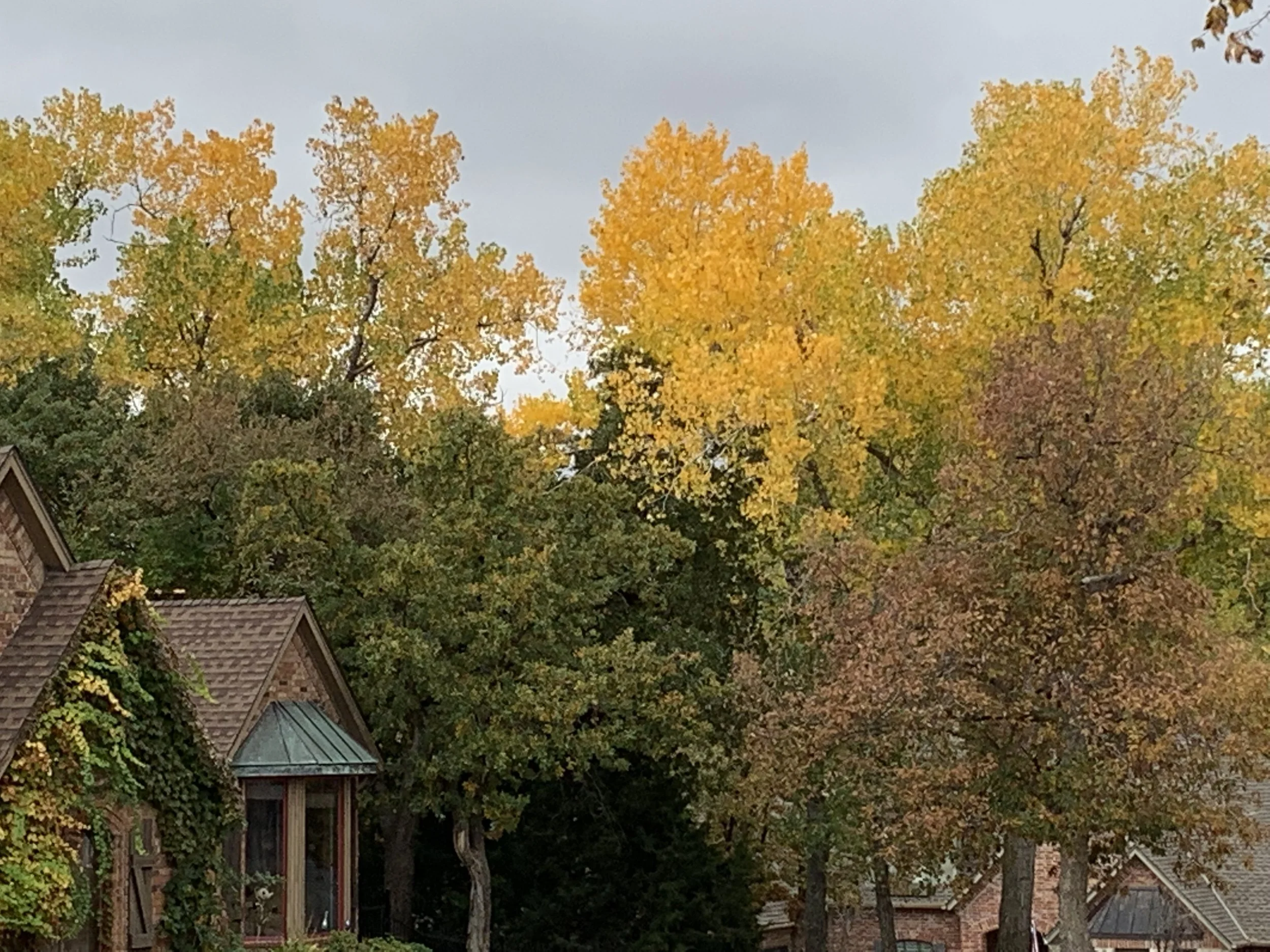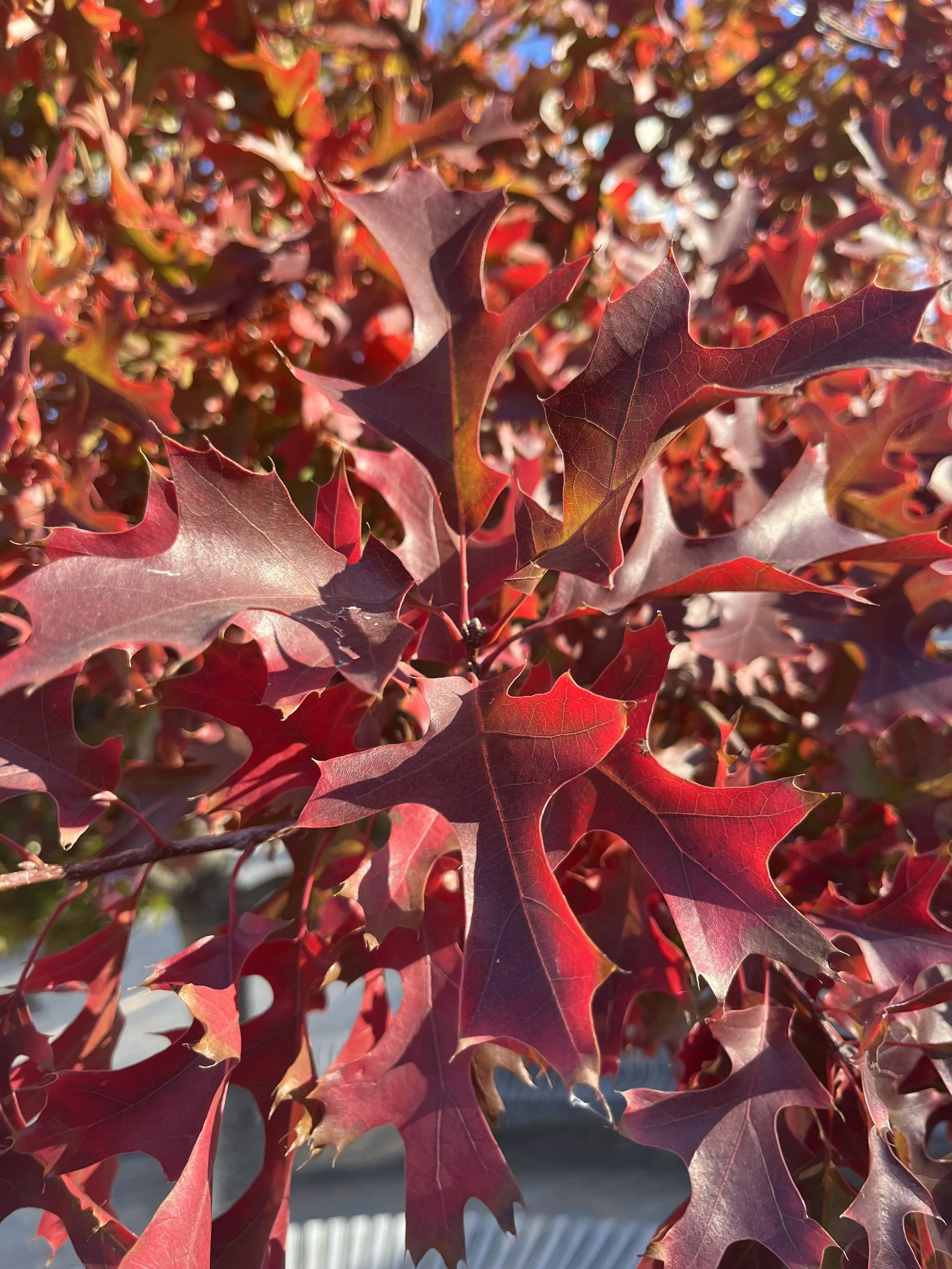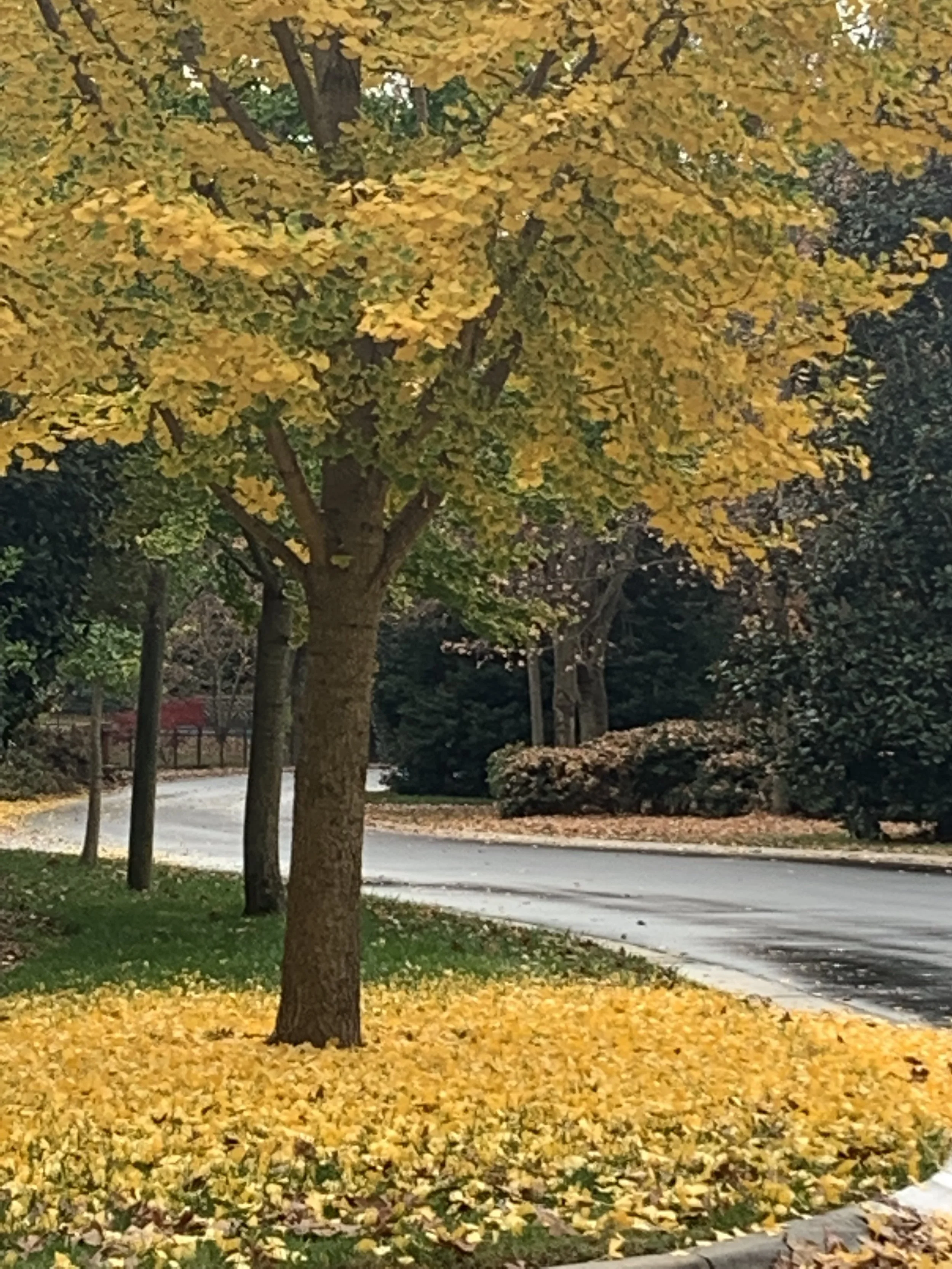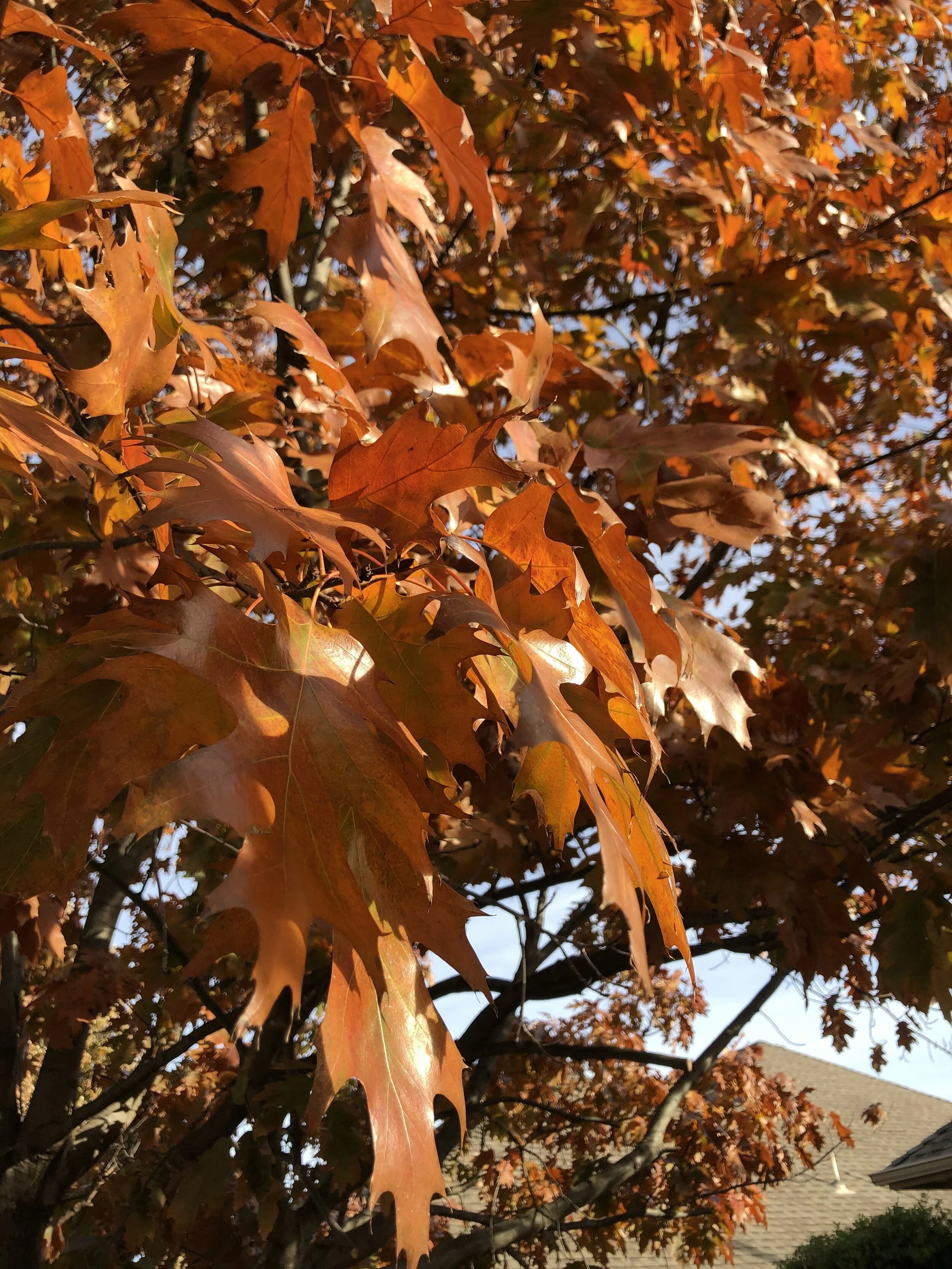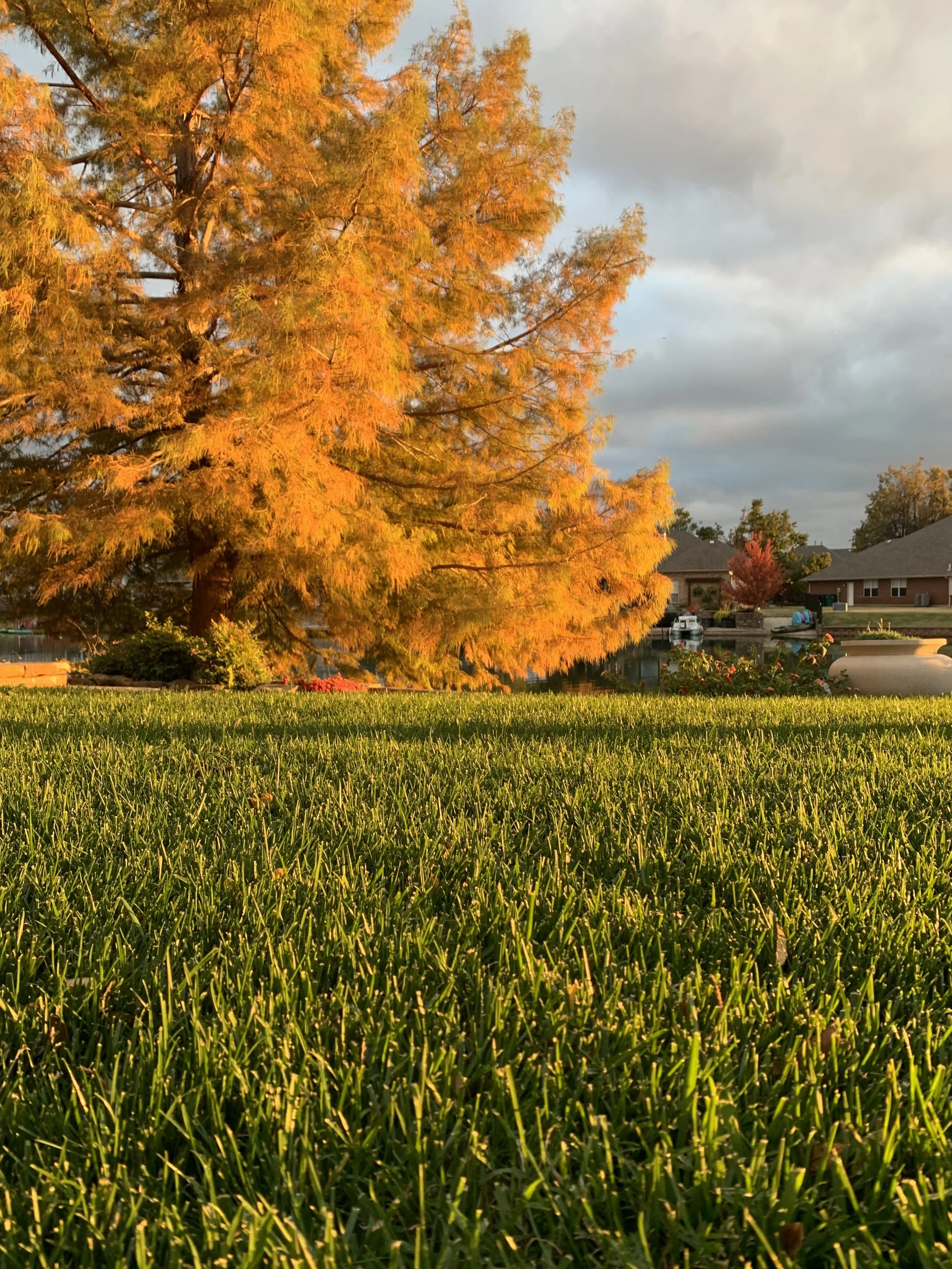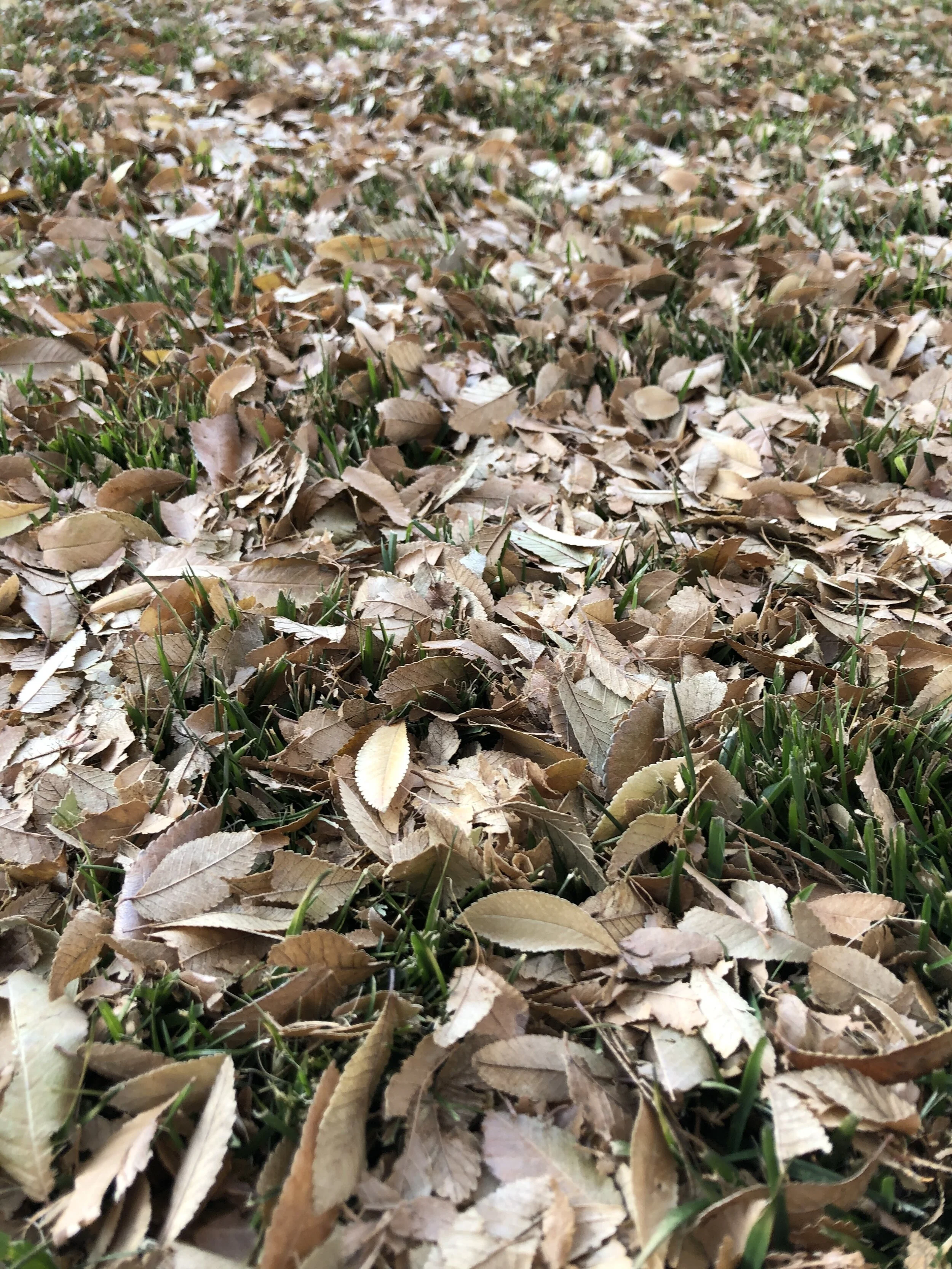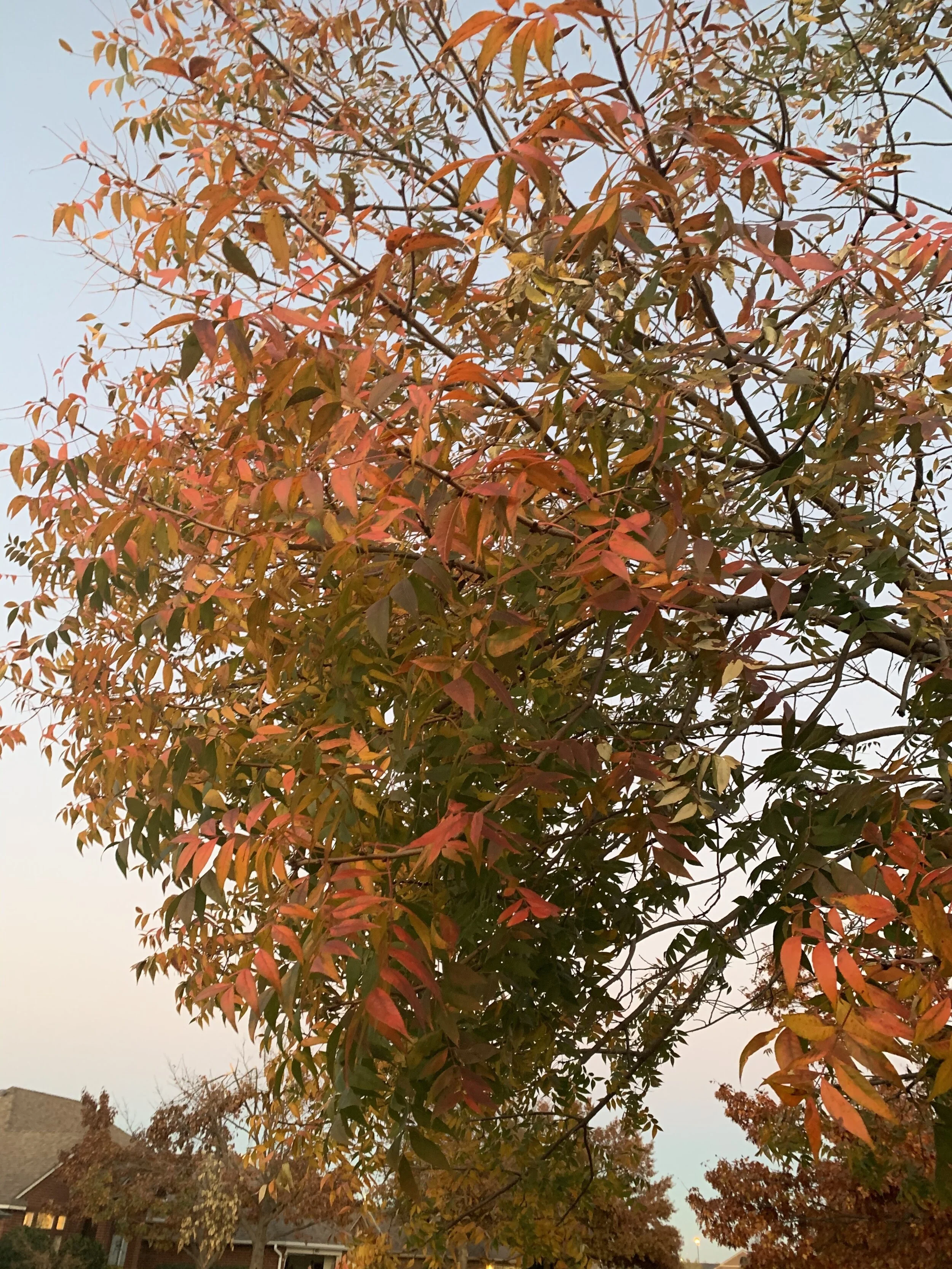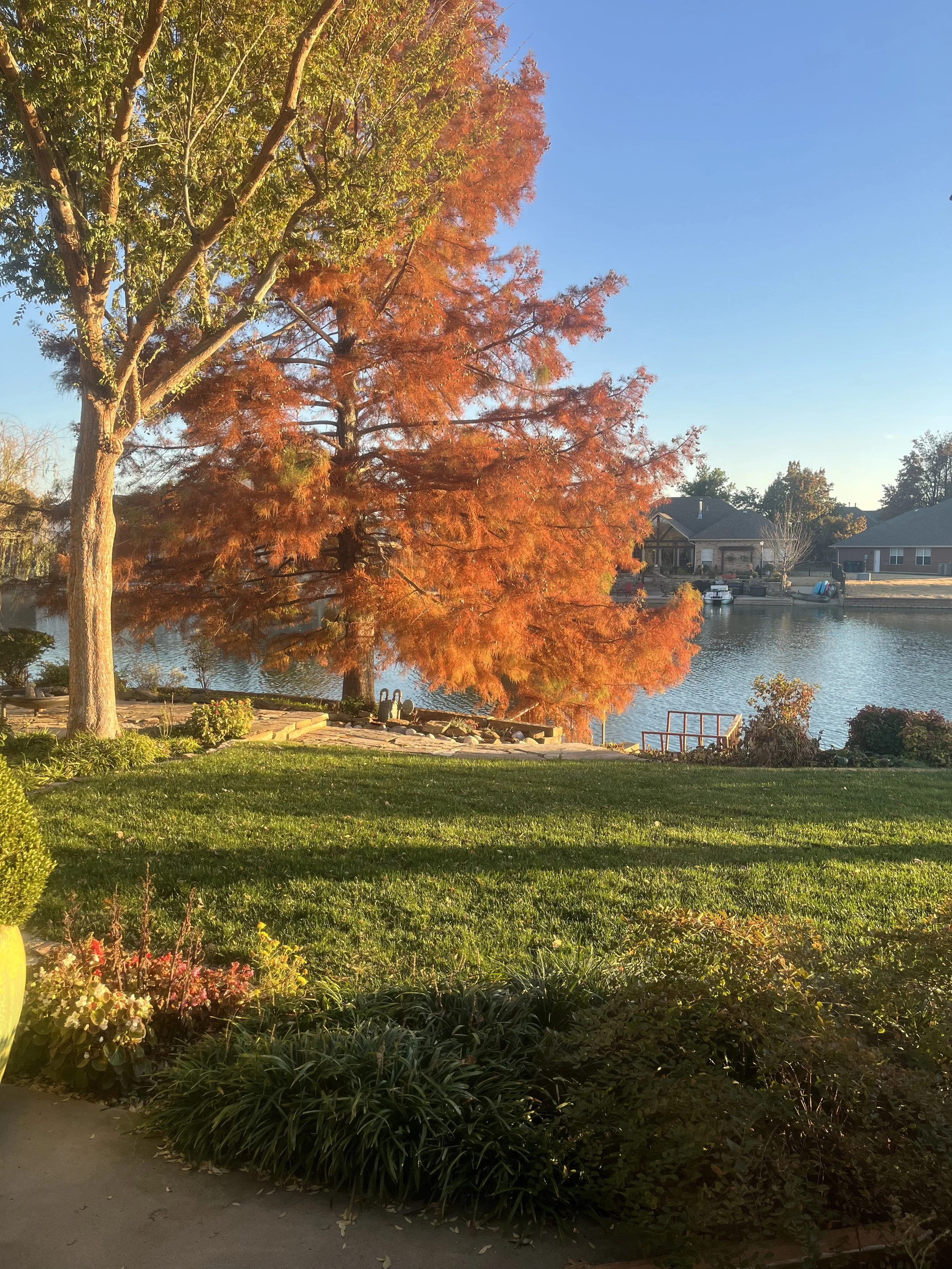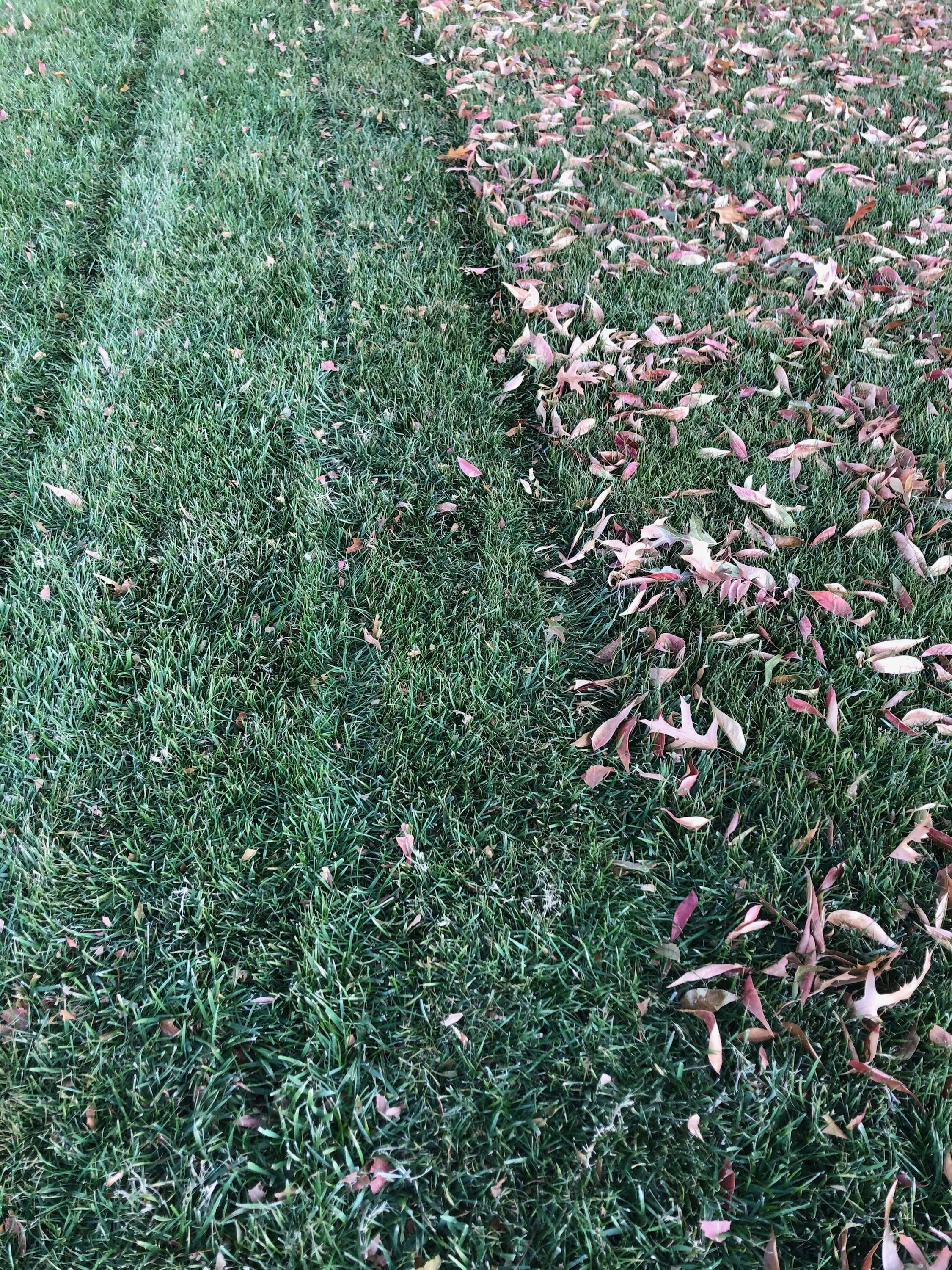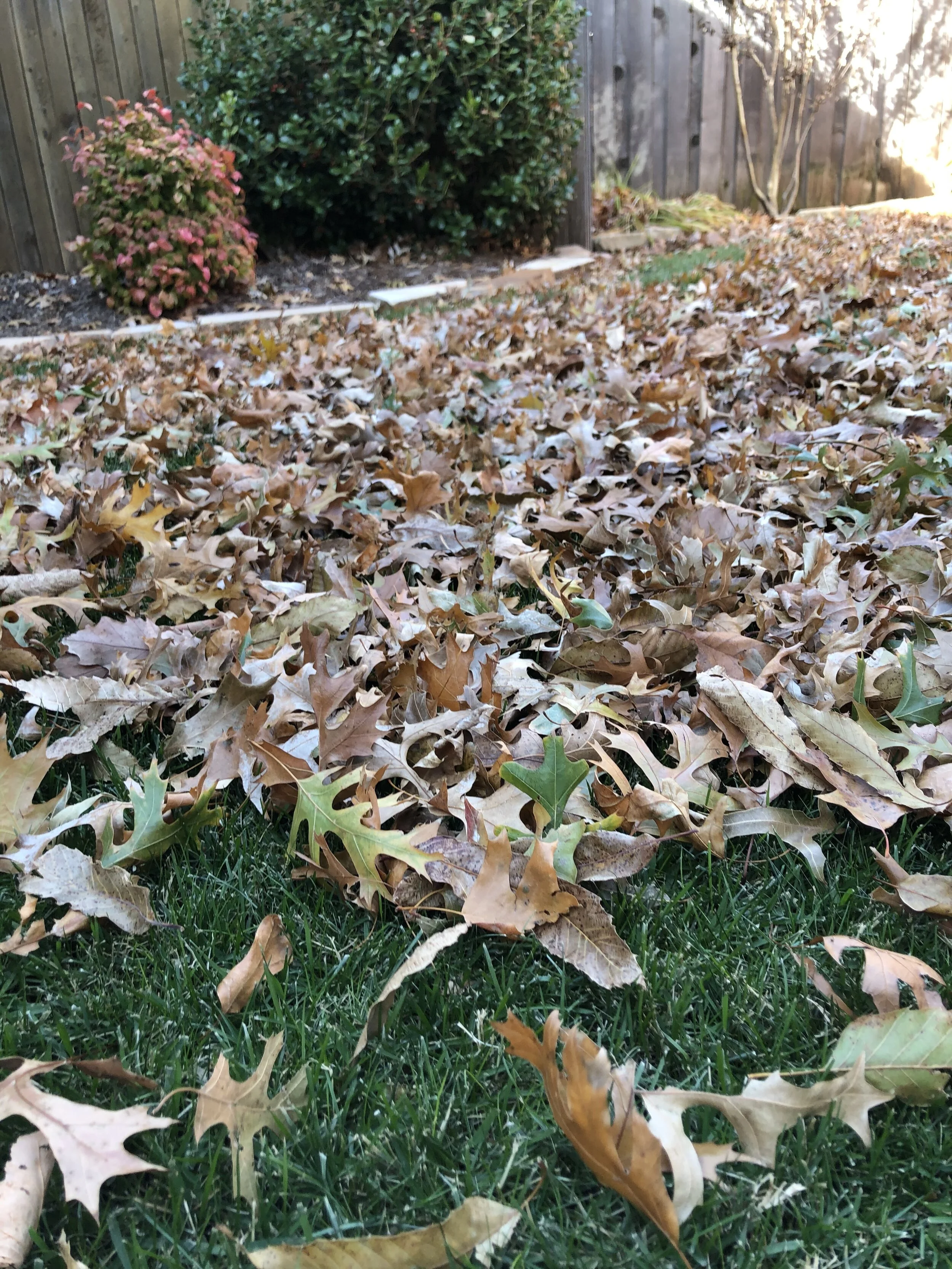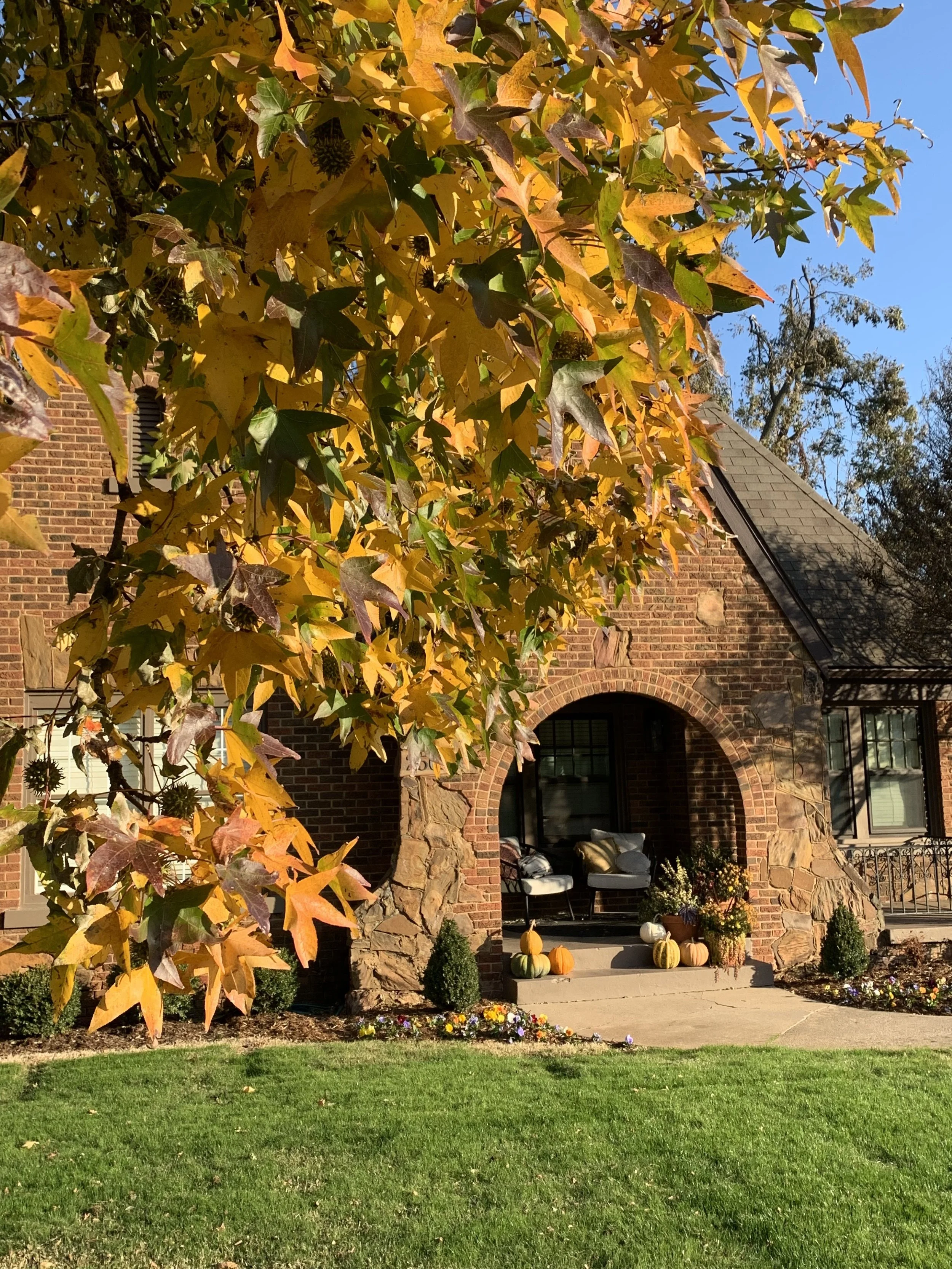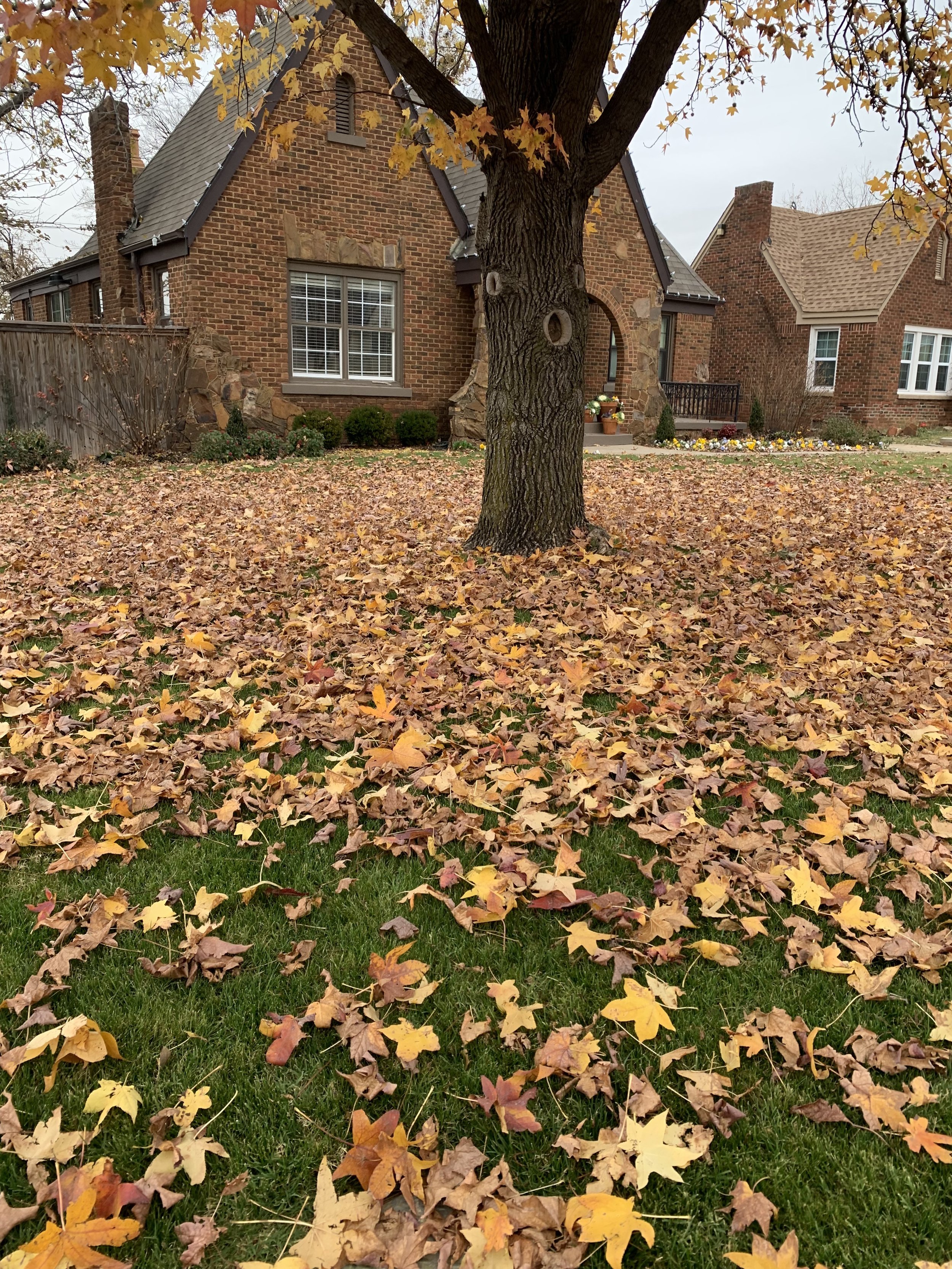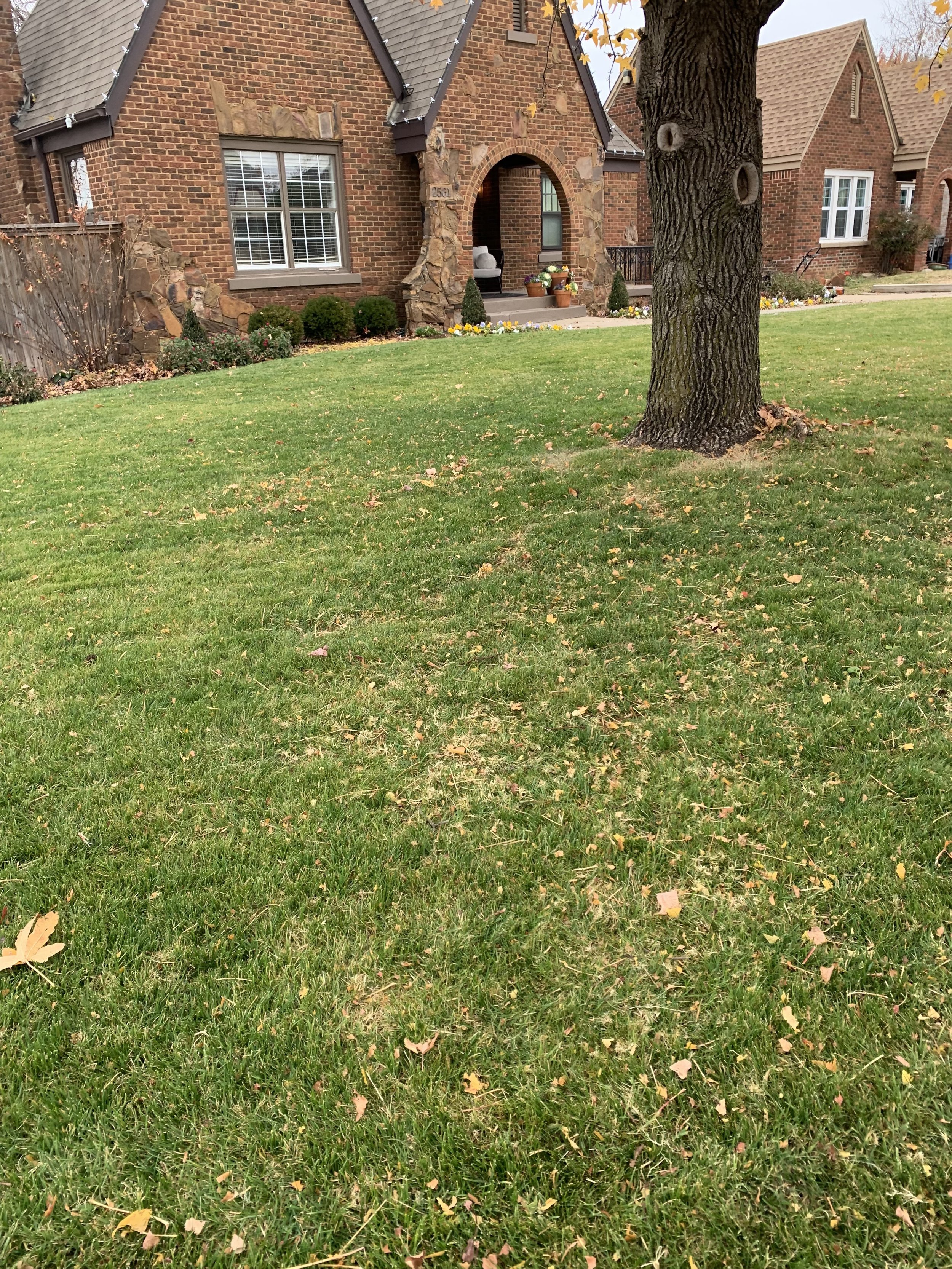Leaf Clean-up is a Matter of Lawn Health
Don’t you just love trees!
Trees announce the end of winter by celebrating spring with bursts of colors as they come to life with fresh buds and colorful blossoms.
In the summer, we enjoy the coolness of their shade.
And now, fall, we enjoy the bright shades of red, yellow, orange and brown that trees add to our world.
Lawn and landscape enthusiasts just can’t imagine a world without the enjoyment of trees.
But, it is starting…
the not so enjoyable side of trees…
falling leaves!
Let’s face it, for all the wonderful attributes of trees, trees can be a love-hate relationship.
Maybe “hate” is too strong of a word for a tree lover.
Maybe it more of a love-love-love….
followed by an inconvenient relationship.
It is just so unfortunate that leaf clean-up is a necessary evil of being a tree lover.
Weekly mulch mowing leaves is a best practice for keeping your healthy through the fall.
We love the spectacular red maple leaves on our trees. But, as soon as they clutter the lawn, we can’t stand them.
The old yellow Cottonwood leaves look great towering over this Edmond neighborhood, but soon frequent mulch mowing of leaves will be a best practice in this neighborhood.
Shumard Oak trees are one of the last trees to add color to the fall landscape and also one of the last trees to drop leaves.
Why is leaf clean important?
Can’t I just leave the leaves on the lawn and landscape until an Oklahoma wind pushes them down the street?
Why is it important to clean up leaves when the lawn isn’t growing much and will soon be dormant?
Is the only reason we clean up leaves is to have a neat and tidy landscape?
Actually, leaf clean-up is a particularly important part of lawn health.
Why?
For fescue lawns…
Fescue lawns are thriving right now. Gradully fescue growth will slow but root development will continue.
Light and air are two critical elements needed for the turf to build strong roots.
Strong roots equal a better lawn next spring.
Best practices for fescue lawns are all about developing a strong root system for next summer.
The best practices include fall fertilizer applications, overseeding to thicken the turf, proper water management, and ensuring the turf receives light and air by removing leaves frequently.
For cool season lawns, allowing leaves to accumulate for more than a week results in thinner turf.
Allowing leaves to become matted on cool season lawns will result in completely bare areas. This is important for mature fescue lawns, but especially critical for newly seeded fescue.
Fescue Lawn Recommendation –
Continue to maintain fescue lawns weekly as long as leaves are falling and accumulating.
Oak trees are one of the last trees to drop their leaves. Some varieties of oaks actually hold their leaves until new buds emerge in the spring.
The incredible colors of fall are gradually fading into the stress of leaf cleanup.
Unfortunately, soon the brilliant rusty reds and yellows of my Bald Cypress will cover the lawn and patio.
Due to the smallness of the leaf, Elm leaves will create a thick mat if not cleaned up frequently.
When you make leaf clean up a weekly practice, most of the time it is as simple as using your lawn mower to mulch mow the leaves back into the lawn. Studies show mulch mowing leaves return nutrients and organic matter back to the soil.
My current practice is to mulch mow my fescue lawn every 4-5 days.
When leaf drop is heavy, raking and removal may be needed. The goal is to return your lawn condition to the point where air and light can reach the turf blades. If mulch mowing only results in a heavy layer of smaller leaves, it is time to rake and bag.
When a large leaf drop occurs, and it typically happens once or twice every fall, my practice is to blow the majority of leaves into piles, bag them and then mulch mow the lawn.
So, is leaf clean-up necessary? Yes:
Leaf removal is a matter of lawn health, not just tidiness.
All lawns need air and light to thrive, even in the fall and winter.
Resist the urge to wait until all your leaves have dropped before you clean them up!
Mulch mowing often is a beneficial way to keep leaves cleaned up.
Bald Cypress needles are notorious for creating a dense blanket robbing your lawn of light and air.
For bermuda lawns…
It is tempting to let leaves build up on dormant warm season lawn. But, dormant bermuda also needs air and light. Piled up leaves trap moisture and are prime breeding grounds for disease. Moist leaves can result in fungal problems.
It is common to find thin, and sometimes bare areas in bermuda lawns where leaves have been left for extended periods of time.
Bermuda Lawn Recommendation –
Even though warm seasons lawns have stopped growing and are entering dormancy, keeping leaves cleaned up and not allowing them to accumulate around edges and in corners is the best practice.
Leaves piled up in corners are a breeding ground for disease.
Mulching leaves with your mower is very beneficial to your soil.
Allowing leaves to accumulate on your lawn can result in a thinner turf.
A leaf covered lawn will reduce the effectiveness of the last lawn application of the year by limiting the weed preventing herbicide from reaching the soil surface.
Another reason for regular leaf removal is the timing of the last lawn care application of the season –
Fall is a critical time to prevent and control weeds and set your lawn up for a great start next spring. Application effectiveness is reduced when the herbicide can’t reach the target because there is a layer of leaves.
Some the the most dynamic yellow leaves in the metro can be found on the Ginkgo Trees on NW 1st and Classen in front of the old Sunshine Cleaners building.
Don’t allow leaves to accumulate on your lawn edges for days and days. If you do the result will be thin edges next spring.
Frequent leaf clean-up this fall will give you a better-looking, healthier lawn next spring and, more importantly, it could prevent you from spending time and money repairing a thin lawn.
Lorne Hall
Hall | Stewart Lawn + Landscape
(405)367-3873


